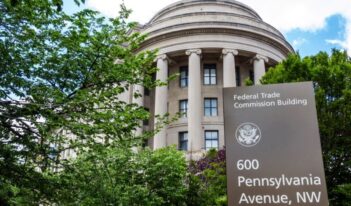
President Biden cancels Alaska oil and gas leases, CMS establishes new nursing home staffing requirements, and more…
IN THE NEWS
- The Biden-Harris Administration announced that it would cancel all remaining oil and gas leases in the Arctic National Wildlife Refuge and prohibit drilling in 13 million acres of the National Petroleum Reserve in Alaska. The Trump Administration opened this untouched land to drilling in 2020, and it is estimated that the refuge sits atop 11 billion barrels of oil. The new regulations, however, will not stop the $8 billion dollar Willow oil drilling project occurring nearby that President Joseph R. Biden approved earlier this year.
- The U.S. Department of Health and Human Services, through the Centers for Medicare & Medicaid Services (CMS), proposed a rule that would establish new comprehensive nursing home staffing requirements. The rule requires nursing homes participating in Medicare and Medicaid to provide each resident with at least three hours of care from registered nurses and nurse aides per day. CMS estimated that the rule would raise staffing levels for more than 75 percent of nursing homes, CMS Administrator Chiquita Brooks-LaSure predicted that the rule would “hold nursing homes accountable and make sure that residents get the safe, high-quality care that they deserve.”
- In a recent decision, Mexico’s Supreme Court decriminalized abortion nationwide. The Court found that the criminalization of abortion is unconstitutional and ordered the removal of abortion from the federal penal code. The ruling ensures that pregnant people can receive an abortion from federal health services, although 20 of the 32 Mexican states still prohibit the medical procedure. This decision reflects the trend in Latin America toward the legalization of abortion.
- The U.S. Securities and Exchange Commission (SEC) issued an order directing equity exchanges and the Financial Industry Regulatory Authority to develop a new plan for producing data used in equity investing. The new plan would “replace the three existing national market system plans which govern the public dissemination of real-time, consolidated equity market data for national market system stocks.” Since equity exchanges hold control over the production and dissemination of this data, the SEC’s order addresses conflict of interest concerns and improves the governance of these plans.
- The Board of Governors of the Federal Reserve System proposed a rule amending the way large banks calculate the amount of excess capital they must reserve to mitigate risk. The Federal Reserve explained that the rule is intended to help prevent large bank failures by requiring large and interconnected banks to hold extra capital. Under the proposed rule, institutions would use an average data value for certain systemic indicators over the relevant time period, instead of the indicator’s value as of the last day of the time period. In addition, this rule would alter the measurement methodology of these indicators to improve the sensitivity of the surcharges.
- The U.S. Department of Justice submitted a notice of proposed rulemaking to clarify the definition of “engaged in the business” of firearms dealing. The proposed rulemaking would alter how the Bureau of Alcohol, Tobacco, Firearms and Explosives (ATF) applies the Bipartisan Safer Communities Act by specifying what kind of firearms dealing requires a license. This change is directed at closing the “gun show loophole” by requiring background checks for more sellers.
- The SEC approved a change to the funding model of an audit program that tracks activity in equity and options markets. Formally adopted in 2016, the audit program is “a repository of investor and transaction data meant to give regulators overarching visibility into U.S. market operations.” Under the new funding model, the program’s operating costs will be split among buyers, sellers, and the stock exchanges where they trade.
WHAT WE’RE READING THIS WEEK
- In a recent working paper released by the Regulatory Studies Center at The George Washington University, Robert W. Crandall, a Nonresident Senior Fellow at the Technology Policy Institute in Washington, D.C., examined the impact of communications-company ownership of video content on competition. Crandall explained that AT&T and Comcast have invested heavily in media content, even though their competitors Verizon and Spectrum have not. Analyzing the common stock values of these firms, Crandall found that integration into video content did not correspond with an increase in the value of AT&T or Comcast relative to their competitors. Crandall concluded that “any opportunities for anti-competitive behavior are more than offset by the inability of integrated carriers to manage their combined operations efficiently.”
- In a recent Brookings Institution paper, Alex Enger, a Fellow in Governance Studies, proposed granting new authorities to federal regulators to aid them in their effort to govern algorithms used in critical socioeconomic determinations, such as job discovery and hiring, property appraisal, medication approval, and more. Enger argued that, although these algorithmic decision-making systems have at times improved social outcomes, there are many individual and systemic harms documented. Enger proposed granting regulators authority to investigate, audit, and issue and enforce regulations on those systems. Enger contended that these improvements will maintain longstanding consumer and civil rights protections.
- In a recent Brookings Institution report, Nicol Turner Lee, the director of the Center for Technology Innovation at The Brookings Institution, along with former research interns Kyooeun Jang and Lulia Pan, chronicled the status of both state and federal regulations aimed at protecting children on the internet. Lee, Jang, and Pan examined each state’s definition of excluded internet platforms and concluded that these “patchwork” definitions allow platforms to “evade public oversight.” The authors explained that the federal Kids Online Safety Act covers activity that many state laws miss and lays the groundwork for more comprehensive legislation in the future.
EDITOR’S CHOICE
- In an essay in The Regulatory Review, independent consultant Patrick McConnell examined the challenges associated with changing the “risk cultures” within large financial institutions. McConnell cautioned against treating risk as something external to routine business decisions, rather than as an integral part of every decision. Using the U.K. Financial Conduct Authority as an example, McConnell explained how the Authority used dozens of sub-indicators to measure organizational culture through its TCF Cultural Framework analysis. McConnell concluded that risk management experts should work with experts in human behavior to better assess risk culture.



